The video of the plenary is available on-line, but the first part doesn't have any audio, and it ran late so the last part didn't get recorded. My part starts right at the thirty-nine minute mark. (Marquette uses MediaSite for their lecture and slideshow capture - a very cool system.)
The text, and the slides, from my presentation and below, after the jump. (At least this is the final draft that I mad more or less memorized, but which I continued to tweak as I practiced it a few dozen times the day before the plenary.) (And its damn near impossible to get the text and the slides the align correctly - Blogspot doesn't let you fully edit HTML if you also use the Compose option.)
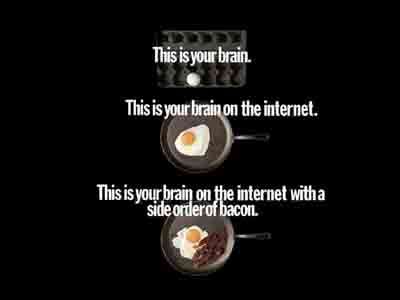
In the past few years, there have been
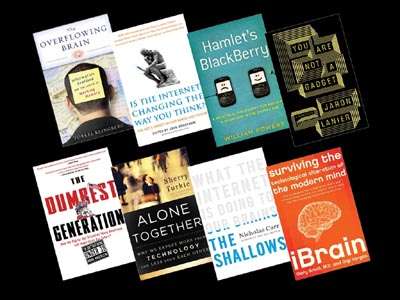 a lot of books and articles critical of our “always on”/“always connected” technology-focused culture. Some of these even suggest that web 2.0 applications, smartphones, all this technology we use, is actually changing the way our brains work, and not in a good way.
a lot of books and articles critical of our “always on”/“always connected” technology-focused culture. Some of these even suggest that web 2.0 applications, smartphones, all this technology we use, is actually changing the way our brains work, and not in a good way.So maybe this drive to regularly check Well, if that’s true, what else have evolution prepared us for? For one, our taste buds and appetites Well, today - thanks at least in part to The concept of “internet addiction” is When our ancestors were on the hunt, That’s how we’ll say “Oh, I’ll quickly Then the more we do that, the more So yeah, sure, evolution may have Being able to quickly check and skim Learning the law requires extended We need to teach our students to use Do not let them interfere and distract The best advice for our students may
But in response to that, others have 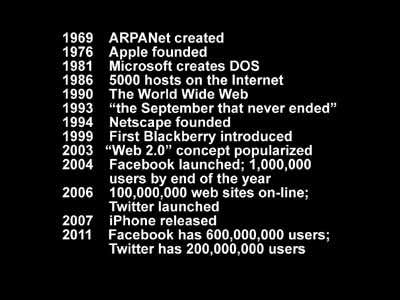 pointed out, no, in order to survive, our ancestors had to be alert to multiple possible threats around them and stay attentive to every sound or movement heard or saw.
pointed out, no, in order to survive, our ancestors had to be alert to multiple possible threats around them and stay attentive to every sound or movement heard or saw. our e-mail, Twitter stream, Facebook, RSS feeds, etc., is just an adaptation of early survival mechanisms and the evolution of the internet is just the latest step in mankind’s evolution and so, sure, we’re perfectly capable of dealing with this modern deluge of information.
our e-mail, Twitter stream, Facebook, RSS feeds, etc., is just an adaptation of early survival mechanisms and the evolution of the internet is just the latest step in mankind’s evolution and so, sure, we’re perfectly capable of dealing with this modern deluge of information. evolved to crave fatty, high-calorie foods. So surely we’re also capable of dealing with the modern deluge of readily available, inexpensive food, right? How’s that been working out for us?
evolved to crave fatty, high-calorie foods. So surely we’re also capable of dealing with the modern deluge of readily available, inexpensive food, right? How’s that been working out for us?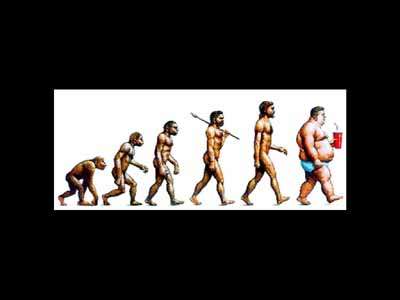 evolution - one-third of adult Americans are obese. Are we going to see an epidemic of “information obesity” soon? Are we starting to see that now?
evolution - one-third of adult Americans are obese. Are we going to see an epidemic of “information obesity” soon? Are we starting to see that now? debatable, but our brains do have several re-enforcing mechanisms that recent research indicates are relevant to how we work with information today.
debatable, but our brains do have several re-enforcing mechanisms that recent research indicates are relevant to how we work with information today.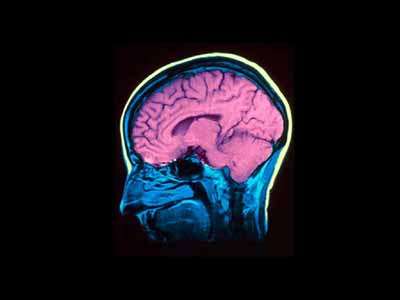 or seeking or searching for something, their brains released dopamine - a chemical similar to adrenaline - to help keep them sharp and alert and on edge. Then, when they found what they were looking for - a meal, a mate, whatever - that physical, concrete reward would satisfy that seeking/hunting behavior and their brains would then release endorphins to give them a nice, contented feeling. These endorphins would also balance out the dopamine, take the edge off, bring them down, and they’d feel relaxed and satisfied.
or seeking or searching for something, their brains released dopamine - a chemical similar to adrenaline - to help keep them sharp and alert and on edge. Then, when they found what they were looking for - a meal, a mate, whatever - that physical, concrete reward would satisfy that seeking/hunting behavior and their brains would then release endorphins to give them a nice, contented feeling. These endorphins would also balance out the dopamine, take the edge off, bring them down, and they’d feel relaxed and satisfied.
Today, we’re engaging in similar  seeking/hunting behavior when we use all these on-line information resources and electronic gadgets: dopamine is responsible for that slight rush we feel when we’re on-line, searching on Google, browsing Westlaw results, checking e-mail, reading our Twitter stream, etc. BUT because the objects/targets of these electronic “hunts” are virtual, there is no concrete thing to trigger the endorphin-fueled feeling of satisfaction/contentment. So after we’ve completed our on-line “hunt”, we’re still on-edge from the dopamine rush, but it starts to wane, so to get it back, we’ll search for something else, starting a cycle of seeking behavior we’ll use to try to keep that rush going.
seeking/hunting behavior when we use all these on-line information resources and electronic gadgets: dopamine is responsible for that slight rush we feel when we’re on-line, searching on Google, browsing Westlaw results, checking e-mail, reading our Twitter stream, etc. BUT because the objects/targets of these electronic “hunts” are virtual, there is no concrete thing to trigger the endorphin-fueled feeling of satisfaction/contentment. So after we’ve completed our on-line “hunt”, we’re still on-edge from the dopamine rush, but it starts to wane, so to get it back, we’ll search for something else, starting a cycle of seeking behavior we’ll use to try to keep that rush going.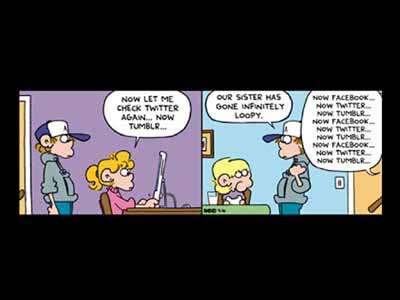 look this up on Google, then get back to what I’m doing” and then forty-five minutes have passed and we’ve gone off on four or five tangents, checked all our e-mail, social media accounts, and maybe we didn’t even find what we were initially looking for.
look this up on Google, then get back to what I’m doing” and then forty-five minutes have passed and we’ve gone off on four or five tangents, checked all our e-mail, social media accounts, and maybe we didn’t even find what we were initially looking for. we crave that slight dopamine rush, the more we want to check our e-mail, Facebook, etc., and soon we’re falling asleep with our Blackberrys on our nightstand and checking them as soon as we wake up, and during the day we start to feel twitchy if we haven’t checked our e-mail, Twitter, Facebook, whatever, for a couple of hours.
we crave that slight dopamine rush, the more we want to check our e-mail, Facebook, etc., and soon we’re falling asleep with our Blackberrys on our nightstand and checking them as soon as we wake up, and during the day we start to feel twitchy if we haven’t checked our e-mail, Twitter, Facebook, whatever, for a couple of hours. equipped us for this behavior, but we are not cavemen any more, and when our ancestors were staying alert, on edge, and paying attention to every possible danger around them, they were not also trying to read eighty pages of Con Law for their next class.
equipped us for this behavior, but we are not cavemen any more, and when our ancestors were staying alert, on edge, and paying attention to every possible danger around them, they were not also trying to read eighty pages of Con Law for their next class.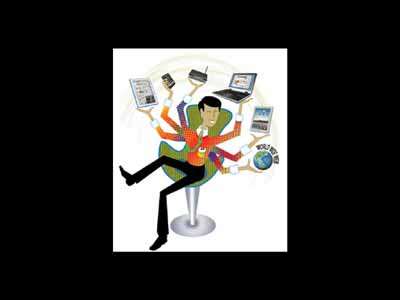 different resources and monitor multiple streams of information may be a useful skill in some situations, but the mental processes that requires are very different from the processes needed to “learn the law.”
different resources and monitor multiple streams of information may be a useful skill in some situations, but the mental processes that requires are very different from the processes needed to “learn the law.” periods of non-distracted focus/concentration on the written word, and you cannot do that with your laptop open next to your casebook while also regularly checking Facebook, Twitter, and e-mail. When you look up from a book to a screen your brain makes several split-second decisions: is that important, do I click on that, should I respond to that? And in just that split-second you’ve disrupted the “deep reading” processes that enable your brain to comprehend what you’ve read and transfer it from your short-term “working” memory to your long-term, retentive memory.
periods of non-distracted focus/concentration on the written word, and you cannot do that with your laptop open next to your casebook while also regularly checking Facebook, Twitter, and e-mail. When you look up from a book to a screen your brain makes several split-second decisions: is that important, do I click on that, should I respond to that? And in just that split-second you’ve disrupted the “deep reading” processes that enable your brain to comprehend what you’ve read and transfer it from your short-term “working” memory to your long-term, retentive memory.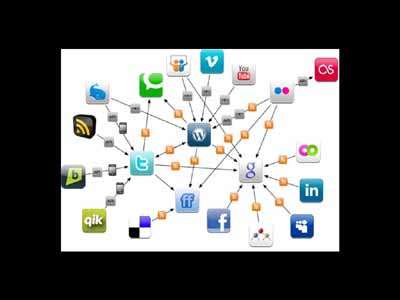 technology and social media deliberately, in a focused manner, to get the most use out of them: but don’t let these tools use YOU.
technology and social media deliberately, in a focused manner, to get the most use out of them: but don’t let these tools use YOU. you from concentrating on the important tasks that NEED your undivided, focused attention.
you from concentrating on the important tasks that NEED your undivided, focused attention.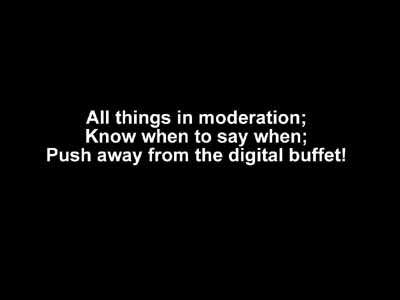 be the same common sense advice for a healthy diet: 1) All things in moderation, 2) know when to say when), 3) push away from the digital buffet - at least when doing your class readings.
be the same common sense advice for a healthy diet: 1) All things in moderation, 2) know when to say when), 3) push away from the digital buffet - at least when doing your class readings.
Full blog post...



